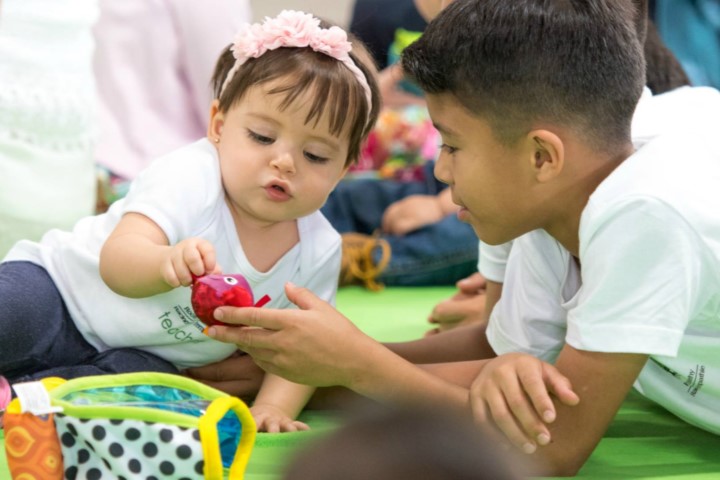Educator and author Mary Gordon believes babies are the “Roots of Empathy,” and her nonprofit by that name is reducing bad behaviors in classrooms across the globe, with help from those who can’t help themselves.


Educator and author Mary Gordon believes babies are the “Roots of Empathy,” and her nonprofit by that name is reducing bad behaviors in classrooms across the globe, with help from those who can’t help themselves.
Gordon launched Roots of Empathy in Canada more than two decades ago to expose K-8 students to babies as a means of helping them understand their own emotions and empathize with classmates. The program includes 27 lessons centered on monthly visits from a parent volunteer and their infant, supervised by a Roots of Empathy-trained instructor, Nation Swell reports.
“What we do know and what teachers know is that the children really do learn to understand the alphabet of their emotions,” Gordon said. “And even better, they are able to talk about how they feel.”
Over the last 22 years, Roots of Empathy has expanded to 11 countries including the United States, driven by both anecdotal evidence and research showing its powerful impact. One study suggests the program can cut the number of students picking fights in half, while another highlights reductions in “difficult” behavior and increases in positive communication and social behaviors.
University of Missouri researchers in 2005 wrote Roots of Empathy shows “particularly strong evidence for its potential to reduce aggression and violence,” according to the news site.
The Seattle school district first adopted Roots of Empathy in 2007-08, and more than 15,000 Seattle students have participated in the program since its inception.
“Roots of Empathy provides a unique way to bring out compassion and tenderness in students,” Nancy Smith, a third-grade teacher in Seattle’s Olympic Hills Elementary, told Seattle’s Child in 2015. “For kids, Roots of Empathy is a respite from the day-today realities of school, and helps them deal with the difficulties and challenges in their home lives, as well. The visits are a breath of fresh air, giving kids a break from the work of academic learning and interactions with peers.”
Gordon said the program is designed to take a proactive approach to bullying and other student discipline issues.
“It’s not medicine, it’s vitamins, and we all need vitamins,” she told Nation Swell. “If you offer a universal program, you head off a lot of trouble, and it’s a benefit that we head off aggression and bullying.”
“This is our solution to building a caring, peaceful and civil society; through children,” Gordon said.
James Davison Hunter, founder of the Institute for Advanced Studies in Culture at the University of Virginia, discussed the importance of addressing specifics of each school’s moral ecology to created personalized solutions to bullying.
“We can only care for the young in their particularity,” Hunter wrote in “The Content of Their Character,” an analysis of character education programs in a wide variety of schools. “If we are not attentive to and understanding of these contexts, we are not caring for real, live human beings, but rather abstractions that actually don’t exist at all.”
The “universal program” offered by Roots of Empathy involves broad lessons for all students. Other programs like the Olweus Bullying Prevention Program take a similar all-inclusive approach, along with lessons targeted specifically at victims and perpetrators of bullying.
“Because the Olweus Bullying Prevention Program is not a curriculum, its core principles, rules, and supportive materials can be adapted for use by any program that children and youth attend on a regular basis, such as after-school programs, camps, or community youth programs,” according to the Olweus website. “All students participate in most aspects of the program, while students identified as bullying others, or as targets of bullying, receive additional individualized interventions.”